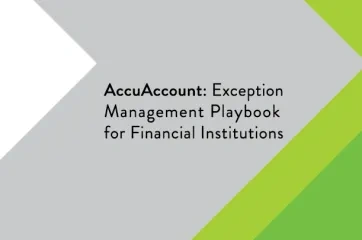A loan servicing specialist manages elements of consumer or commercial loans from the time immediately after consummation through pay-off. Some financial institutions retain loan servicing in-house, while others sell this off to a third party.
Initial Loan Servicing Tasks
Immediately after a loan is consummated and booked to the core, the duties of loan servicing specialists (sometimes referred to as loan administration assistants) begin. Depending on the bank or credit union’s processes, all the documents in the loan file will be reviewed for missing signatures or initials and notate any other custom exceptions. Then, all paper documents in the loan file are scanned and digitally organized. Loan servicing specialists also set expiration dates for tracking recurring items, such as insurance and UCC filings, and confirm that collateral is perfected.
Ongoing Loan Servicing Specialist Activities
Once a loan has been processed, the financial institution relies heavily on loan servicing specialists to monitor the account. Some of their responsibilities in this stage can include:
- Paying property taxes on escrowed accounts
- Issuing past-due and cure letters
- Analyzing escrow to notify customers of shortages or overages
- Managing escrow rate changes and sending notification letters
- Collecting payments
- Processing paid loans, which entails releasing collateral, contacting the account holder’s insurance company to inform that the lien has been removed, and (in the case of an auto loan) sending a title to the borrower
Checks and Balances
Loan servicing specialists work in tandem with lenders to resolve and clear exception reports; this serves to ensure compliance and minimize risk. Typically, the loan servicing department produces exception reports, and then the lender contacts the borrower to resolve any issues. Additionally, the loan servicing department directly receives documents, such as recorded deeds of trust and insurance policies. Depending on the financial institution’s document management system’s capabilities, scanning these into the system could automatically clear the exception and remove that item from the lender’s exception report.
Resources for Loan Servicing Specialists
Looking for more information for or about loan servicing specialists? Be sure to check out our extensive resource library with free spreadsheets, whitepapers, videos and eBooks.
Browse our banking definitions page for more terminology.







